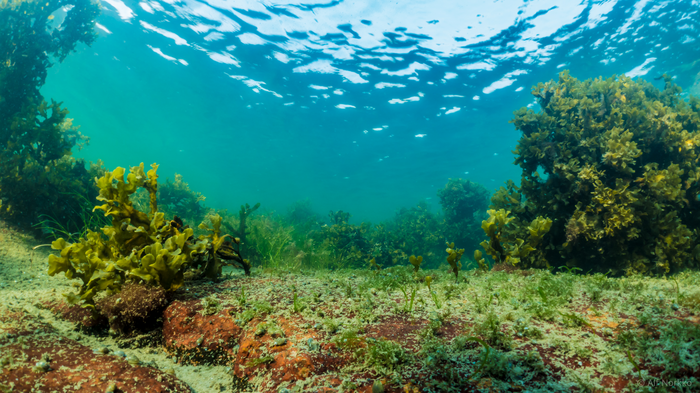
Methane emissions offset carbon uptake by macroalgae
Bladderwrack (Fucus vesiculosus) is a species of macroalgae common to the Baltic Sea that is known to act as an important carbon sink, sequestering a major amount of atmospheric carbon dioxide. However, by measuring the fluxes of greenhouse gases between surface waters and the atmosphere over several seasons, a team of researchers led by the Askö Laboratory in Sweden has found that these algae also emit significant amounts of methane – a more potent greenhouse gas than CO2 – and thus potentially offset the uptake of atmospheric CO2.
“It was a bit surprising that methane was emitted from the bladderwrack, since this algae grows on hard substrates and not on soft sediments, where methane is produced normally,” said study co-author Christoph Humborg, the scientific director of the Stockholm University Baltic Sea Center. “But what we found was that these algae form pockets of sediment where methane forming microorganisms, archaea, could be detected. We found these archaea also on floating filamentous algae and organic matter debris associated with dense stands of bladderwrack.”
By continuously measuring greenhouse gas fluxes between the water surface and atmosphere outside the Askö Laboratory in Trosa during an entire year, the scientists confirmed that mixed vegetation and bladderwrack forests in coastal areas do take up significant amounts of atmospheric CO2. However, this uptake was offset by methane fluxes from the water to the atmosphere.
“Caring for and restoring macroalgae habitats could still be important from a climate perspective. Our study shows that these environments are net carbon sinks, just not as large as has sometimes been suggested,” Humborg explained.
According to the researchers, it is important to clarify whether methane production in the macroalgae habitats is influenced by their health status. “Our measurements were done in situ in the Baltic Sea, which is affected by eutrophication. A less eutrophic ecosystem with less organic matter accumulation and less filamentous algae growth could likely produce less methane. If so, taking measures to help the Baltic Sea recover from eutrophication would substantially improve the blue carbon potential of these habitats and contribute to mitigating climate change,” he concluded.
The study is published in the journal Nature Communications.
Image Credit: Stockholm University Baltic Sea Centre
—
By Andrei Ionescu, Earth.com Staff Writer
Check us out on EarthSnap, a free app brought to you by Eric Ralls and Earth.com.












